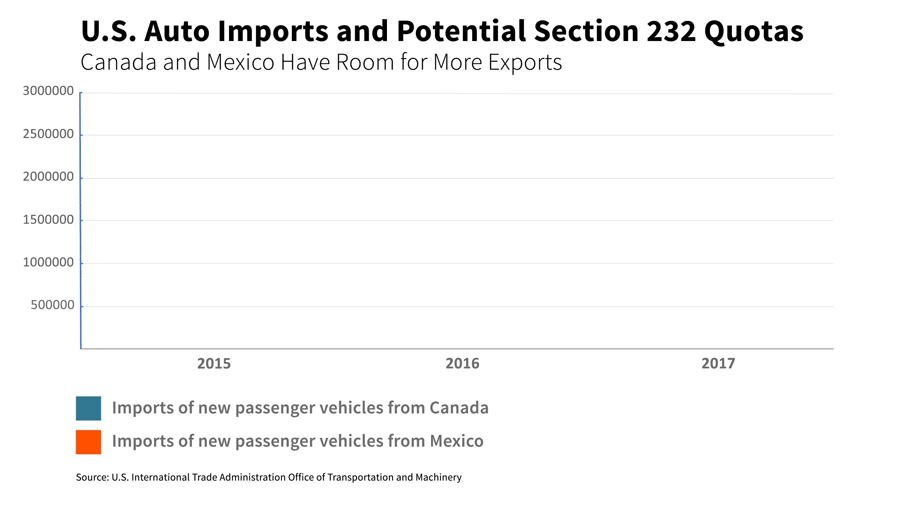USMCA, Cars, and National Security Tariffs
On the side of the new U.S.-Mexico-Canada Agreement (USMCA) to replace the North America Free Trade Agreement, the Trump administration negotiated caps on the amount of autos Mexico and Canada can send to the United States before facing potential Section national security 232 tariffs. The Commerce Department is investigation whether imports of automobiles and auto parts are a national security threat. If the president determines that imports do constitute a national security threat, he may opt to impose tariffs on the products, as he did in the case of steel and aluminum. Countries have escaped the steel and aluminum tariffs by accepting quotas – or caps on how much steel or aluminum they can export to the United States.
The United States reached car and car part quota arrangements with Canada and Mexico, which were announced alongside the USMCA. Each country is allotted 2.6 million vehicles before their exports are exposed to any potential Section 232 tariffs. Mexico exports about 2.1 million cars to the U.S. per year, while Canada exports just under 2 million cars to the U.S. every year. The quotas give each country some room to grow their auto exports to the United States, although if tariffs are imposed and remain in place for many years the quotas may inhibit auto imports from Mexico and Canada and stymie the North American auto industry.

| U.S. Auto Imports, By Unit | |||||
|---|---|---|---|---|---|
|
Imports of new passenger vehicles from Canada |
Imports of new passenger vehicles from Mexico |
||||
|
2015 |
2016 |
2017 |
2015 |
2016 |
2017 |
|
1,950,784 |
1,985,974 |
1,826,416 |
2,087,346 |
2,176,510 |
2,176,510 |
| Data: U.S. International Trade Administration Office of Transporatation and Machinery | |||||